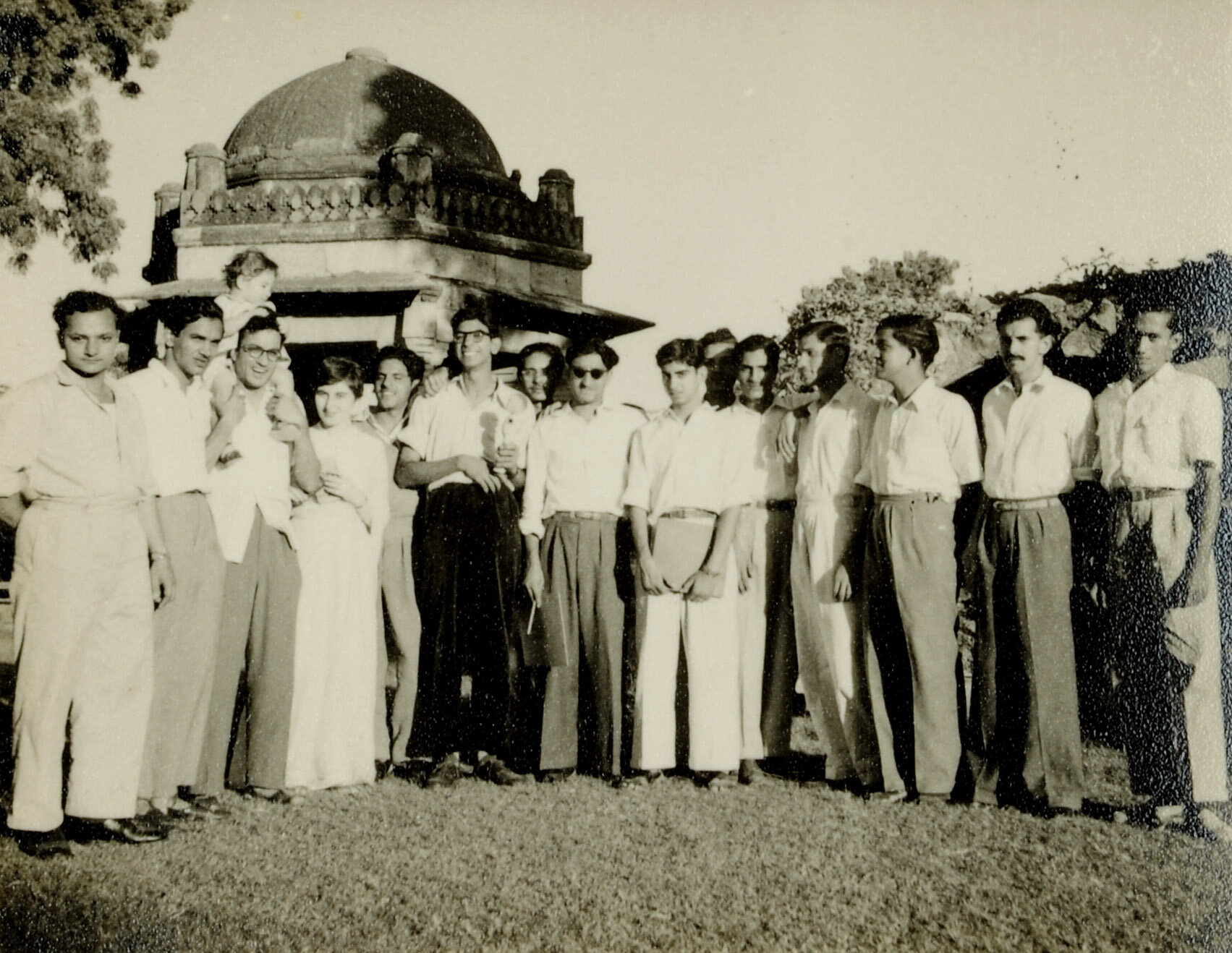Professor Jhabvala Outing With Students & Family
Professor Cyrus Jhabvala
Professor Cyrus Jhabvala started his professional life in Delhi as a teacher in 1949. He was a lecturer at the Department of Architecture at the Delhi Polytechnic. This college became the School of Planning and Architecture (SPA) in 1959, affiliated with Delhi University. Since at this time, University rules did not allow him to have a practice and teach at the same time, he only taught an occasional course as a guest lecturer. In 1967, the School was going through a rough period and Professor Jhabvala was invited back to become the head by the Education Ministry. The Ministry agreed to all his conditions, that he could continue his practice while working in the School, and that he run the Department as he saw fit.
Professor Jhabvala was a daunting but inspiring teacher. He was impatient with indiscipline or lack of commitment to the subject. On the other hand, he appreciated artistic integrity and diligence, making it clear that cliches and pretentions had no part in architectural training. A desire to learn and explore was what impressed him and he sought to develop that in his students. What stood out most about him, and is remembered by every person who knew him, was his sense of humor. He was very witty and an incorrigible prankster. In a crowded room, it was easy to pick out his location from the shouts of laughter emanating from that direction.
The subject he was most known for was building construction. The projects he assigned to his students were like real-life ones, interesting and challenging, making the study highly stimulating. The intensity, scope of work and time that it took to depict the subject initiated students into understanding building construction as a cornerstone of the professional education. He tried to train his students to function competently on real ground by making them familiar with all practical aspects of building. He himself guided every student to achieve what he or she set out to do. Someone could even accuse him of casting a life-long spell on his students.
SPA was founded In 1959 & moved to its present location in 1965.
TJ Manickam was the architect and founding director of the institution.
SPA - Design Studio
His impact was felt way beyond his classroom and his students. Independent India needed a post-colonial fundamental change in the way architects thought about their craft and profession and how and what they taught their students. He encouraged a disciplined scientific approach, at the same time emphasizing artistic creation. He encouraged the students to team up with the National School of Drama and create in more ways than one. It is no wonder that many of the graduates of SPA are known in other fields as well.
Professor Jhabvala designed a new syllabus at SPA. He introduced a paradigm shift by developing an approach and method for an Indian architectural education in the sixties with the introduction of this new syllabus. His insistent accent was on students studying the environment in which they would be building rather than accept designs from environments very different from their own.
SPA - Courtyard
He would take his students to study the ancient monuments of Delhi, Agra and Fatehpur Sikri to learn about construction techniques used in these ancient buildings. By asking them to pay attention to the spaces between the buildings and their expressions, by drawing these buildings, he directed them towards the essence of tradition. “He would ask if a building spoke to us; to imagine how a stone was carried to the site and how stone brackets supported sun shades,” says Raj Rewal, a prominent Indian architect.
Many students would gladly acknowledge that his teaching and his personality deeply affected their lives. It is still not unusual to hear Professor Jhabvala’s name in the studios and corridors of SPA, over 70 years after its creation.
Cyrus Jhabvala Memorial Lecture Series
The School of Planning and Architecture and the Jhabvala family have worked together to set up the Cyrus Jhabvala Memorial Lecture Series to educate future generations of architects. Presenters have included Mr. Raj Rewal, Rahul Mehrotra, and Christopher Benninger.
Links :



